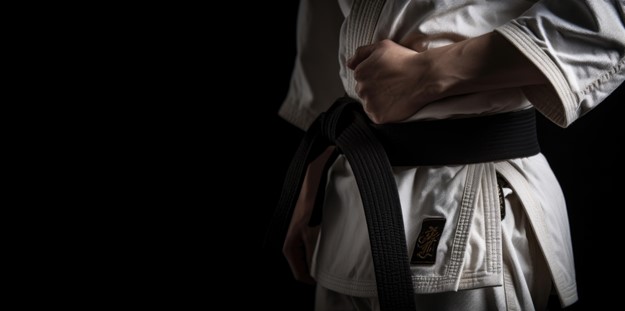In the realm of health and wellness, the confluence of martial arts and medical science presents a fascinating exploration of how disciplines rooted in vastly different traditions can synergize to enhance physical health, mental well-being, and personal growth. Dr Gabriel Hernandez Roman has embarked on a path to master Hapkido, a Korean martial art known for its dynamic and comprehensive approach to self-defense, and explores how this pursuit is influencing his medical practice and personal philosophy towards health and discipline.
The Holistic Approach of Hapkido: A Foundation for Health
Hapkido, characterized by its fluidity, control, and the harmony of force, offers a holistic approach to physical fitness and mental resilience. This martial art encompasses a wide range of techniques, including kicks, punches, joint locks, and throws, alongside the cultivation of internal energy, known as “ki.” For a medical professional, the physical benefits of practicing Hapkido are manifold. It enhances cardiovascular health, flexibility, balance, and strength, reducing the risk of chronic diseases and improving overall physical resilience.
Dr Gabriel Hernandez Roman believes that the benefits of Hapkido extend far beyond the physical. The practice demands and fosters a deep sense of discipline, focus, and patience, qualities that are invaluable in the medical field. The meticulous attention to technique and the constant push to overcome personal limits in Hapkido can parallel the rigors of medical practice, where precision, patience, and continuous learning are paramount.
The Synergy of Mind and Body: Dr Gabriel Hernandez Roman’s Perspective
For a doctor practicing Hapkido, the integration of martial arts into daily life offers a unique perspective on the synergy between mind and body. The mental discipline and mindfulness learned on the mat can directly influence how they approach patient care and personal well-being. In Hapkido, practitioners learn to remain calm and focused under pressure, a skill that translates effectively to handling the stresses and challenges of medical practice. This martial art teaches the importance of being present and making deliberate, thoughtful decisions, a mindset that enhances the quality of care provided to patients.
Dr Gabriel Hernandez understands that the concept of “ki,” or life force energy central to Hapkido, resonates with the holistic approach to medicine. It encourages the practitioner to view health not merely as the absence of disease but as a state of complete physical, mental, and social well-being. This perspective can enrich a medical practitioner’s approach to diagnosis and treatment, emphasizing preventive care and the integration of mental health support into patient care plans.
Cultivating Empathy and Connection Through Martial Arts
The practice of Hapkido also fosters a deep sense of empathy and connection, both with oneself and others. Martial art is predicated on the principles of harmony and respect, requiring practitioners to work closely with partners and understand the flow of energy between individuals. Dr Gabriel Hernandez Roman believes that this aspect of training can enhance a doctor’s ability to connect with patients, understand their experiences, and build stronger, more empathetic relationships. The physical and emotional sensitivity developed through Hapkido can lead to more compassionate care, recognizing the patient as a whole person rather than merely a set of symptoms to be treated.
A Unique Approach to Healthcare
Integrating the principles of Hapkido into medical practice offers a unique approach to healthcare. It encourages a more personalized, holistic view of patient care, where mental well-being is considered as crucial as physical health. This approach aligns with the growing recognition of the importance of mental health in overall healthcare and the need for a more integrated approach to treatment and wellness.
For Dr Gabriel Hernandez Roman, who practices Hapkido, this martial art becomes more than just a means of physical exercise or a hobby. It shapes their approach to life, discipline, and the care they provide to their patients. It offers a framework for understanding the complexity of human health and well-being, emphasizing the interconnection of mind, body, and spirit.
The journey of Dr Gabriel Hernandez Roman, training in Hapkido, offers a compelling glimpse into the potential for martial arts to enrich the practice of medicine. By blending the physical discipline and mental fortitude developed through martial arts with the scientific understanding and compassion inherent in medical practice, this unique intersection provides a holistic approach to health and wellness. It underscores the importance of considering the whole person in healthcare and highlights the profound impact that integrating disciplines such as martial arts can have on medical professionals and the patients they serve. Through this synthesis of martial arts and medicine, we can move closer to a more integrated, empathetic, and holistic model of health and well-being.








